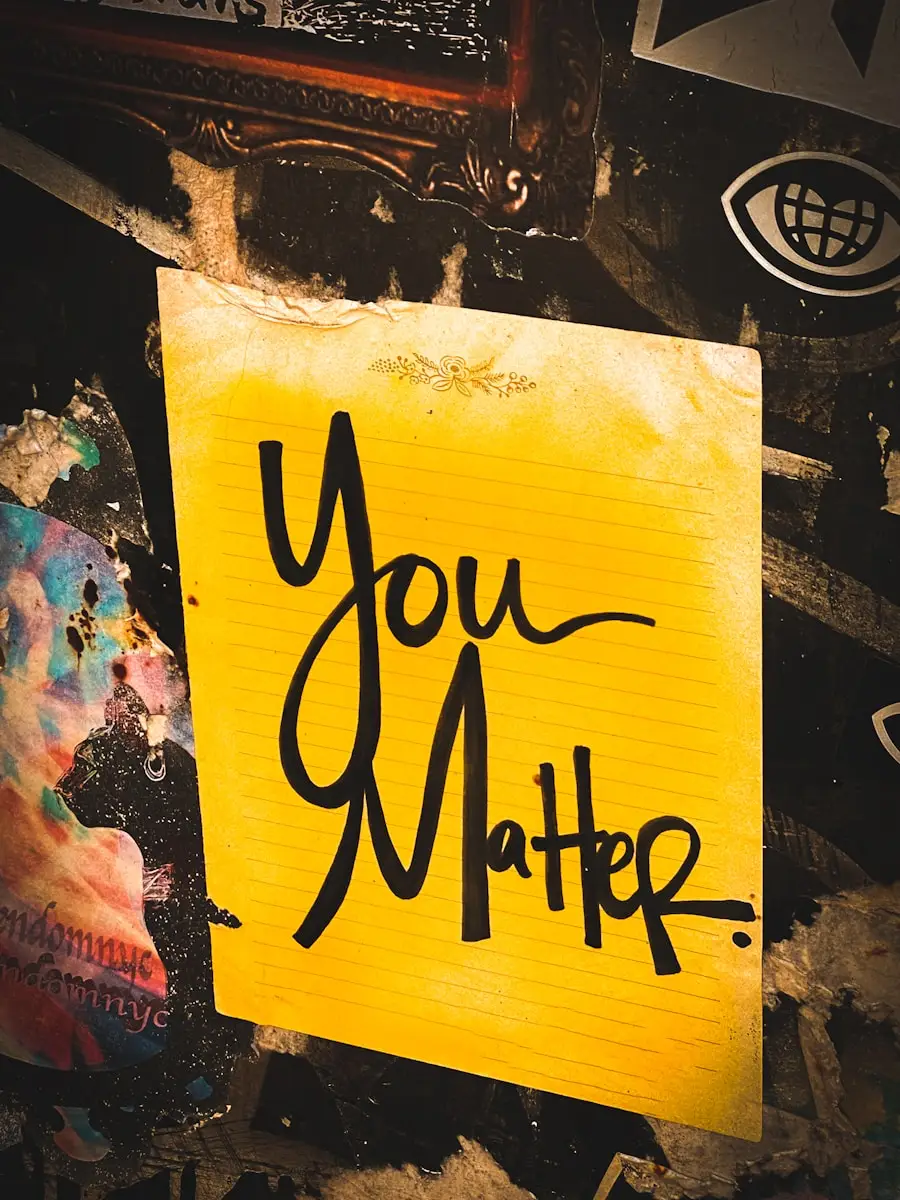Breaking up with a partner can be difficult; no argument there. But what makes breakups even more challenging is looking back and realizing the things we regret doing during the relationship.
People have many common regrets after a breakup. These range from not saying sorry when they did or said something hurtful to holding onto grudges instead of just letting them go. Poor communication and rushing into a breakup are also common sources of regret.
Does any of this sound familiar? If so, keep reading to learn about what people regret not acting upon until they break up.

Ignoring the Red Flags:
Let’s talk a bit about ignoring those big and bright red flags. We’ve all seen the signs, whether it’s in our relationships or what we observed in others. As obvious as they may be, somehow, the red flags often go unchecked. They just seem to slide by.
Of course, hindsight makes it easier to see now what you missed. Back then, when you met your partner, everything initially seemed fine. However, over time, little warning signs started popping up; not all at once, but here and there. When these happened on occasion, it was easier to write them off as “one-offs.” After all, why rock the boat when things are generally going well?
As you may have already figured, ignoring red flags is never a good idea, especially in a relationship with a romantic partner. Those red flags are there for a reason. They’re telling you something may be wrong, and for this reason, paying attention to them is essential.
Here are some of the red flags that are often ignored in a relationship:
- Lack of Communication: Communication is vital in any relationship. If one or both partners are hesitant to talk about their feelings, thoughts, or concerns, it could signify more significant issues. More about communication soon.
- Controlling Behavior: If a partner tries to control your actions, decisions, or who you spend time with, it could be a red flag for an unhealthy relationship.
- Lack of Trust: Trust is vital in a relationship. If your partner constantly questions your actions or doesn’t trust you, it could be a sign of deeper issues.
- Disrespect: If your partner belittles you, insults you, or doesn’t treat you respectfully, it’s a major red flag that should not be ignored.
- Avoidance of Conflict: Conflict is a natural and necessary part of any relationship. In theory, conflict need not be bad or good. It’s the way it’s managed that’s critical. Conflict can be as simple as deciding where to go to eat. Conflict doesn’t have to involve an earth-shattering event. The good thing about well-managed conflict is it brings about change. Without conflict, things stay the same. In a relationship, avoiding conflict becomes a problem when issues that need to be addressed are swept under the rug. The result is often unresolved issues and mounting resentment.
- Gas-lighting: Gas-lighting is a form of manipulation in which one person tries to make the other doubt their own feelings, thoughts, or reality. It is a major red flag and should never be ignored because of the potential harm it can cause to a person’s mental and emotional well-being. Gas-lighters are known for saying things like, “That never happened,” “You never told me,” or “You’re overreacting.”
- Behavior Change: If your partner suddenly starts acting differently, becomes more distant, or shows signs of mood swings, it could be a sign of underlying issues that must be addressed. Changes in behavior, combined with an unwillingness to address concerns, is a warning sign that should not be ignored.
Trusting your instincts and paying attention to red flags in a relationship is essential. Ignoring red flags in a relationship could set you up for potential heartache and disappointment later on. Addressing any concerns or doubts early on is much better than burying them and hoping for the best.
Trust your instincts, and don’t let having difficult conversations with your partner stand in the way of putting your concern out there. Addressing issues head-on is better than pretending they don’t exist. Value yourself and prioritize your emotional well-being by being honest and open about your concerns about your relationship.

Not Communicating Effectively
We briefly touched on communication. Now let’s explore it more deeply.
Effective communication is, without a doubt, the foundation of any relationship. Without it, a relationship becomes hollow at best. No wonder why so many regret not having worked on communicating better with their partner after a breakup. It’s natural to look back and wish you had been more open, honest, and vulnerable in your conversations. Perhaps things might have gone differently had you done so.
Unfortunately, many couples lack the skills to communicate effectively. Some of these are:
- Active Listening: This involves giving your partner your full attention when speaking, showing that you are interested in what they have to say and understanding their perspective.
- Expressing Emotions: It’s important to be able to express your feelings clearly and constructively without blaming or criticizing your partner.
- Being Honest: Honesty is crucial in any relationship, as it builds trust and allows for open communication.
- Compromising: Finding common ground and a mutually beneficial solution when conflicts arise is essential.
- Non-Verbal Communication: Pay attention to your body language, tone of voice, and facial expressions, as these can also convey messages to your partner.
- Avoiding Trigger Words: Avoid using inflammatory language that can escalate conflicts. Instead, focus on using more neutral and respectful language. For example, replace “You always…” with “It upsets me when…”
Improving communication skills doesn’t happen overnight; it takes time and effort. A skilled therapist can help couples listen and “hear” what their partners are saying, identify each partner’s pain points and find effective paths to resolving conflict.

Losing Yourself in the Relationship
Losing yourself in a relationship is a common experience that many people go through at some point in their lives. Sometimes, it develops slowly over time as you prioritize your partner’s needs and desires above your own. On the other hand, losing yourself can happen suddenly when you become so focused on the relationship that you forget your needs and goals.
Examples of losing yourself in a relationship include any of the following:
- You are neglecting your interests and hobbies in favor of your partner’s.
- You are putting your partner’s happiness and well-being above your own.
- You are compromising your values and beliefs to avoid conflict in the relationship.
- Feeling like you must change who you are to be accepted by your partner.
- You are ignoring red flags and staying in a toxic or unhealthy relationship for fear of being alone.
- Give up your independence and rely on your partner for everything.
- You must constantly please your partner to feel valued and loved.
A healthy relationship involves partners supporting each other while still maintaining their identities. The term, autonomy fits these types of relationships because it refers to feeling authentic and behaving in a way that aligns with your values, wants and needs.
Communication with your partner is critical to addressing these issues and finding a balance that works for both of you. Prioritizing self-care and self-love is a way to maintain a strong sense of self within your relationship while still having a meaningful relationship.
Here are some specific ways you can maintain your autonomy and prevent getting lost in a relationship in the future:
- Set Boundaries: Communicate your needs and boundaries with your partner. It is important to establish and respect each other’s individual space and independence.
- Pursue Your Interests: Make time for your hobbies, passions, and social activities outside your relationship. Having your interests and goals can help you maintain a sense of self.
- Maintain Your Friendships: Don’t neglect your friendships or other meaningful relationships. Keeping a strong support system outside your relationship can help you maintain your autonomy.
- Take Care of Yourself: Prioritize self-care practices such as exercise, meditation, and healthy eating. Self-love and self-care are essential for maintaining a strong sense of self within a relationship.
- Set Goals for Yourself: Whether personal or professional goals, having a sense of purpose and direction outside of your relationship can help you maintain your identity.
The bottom line is that a healthy relationship is one where both partners can maintain their identities while still supporting and caring for each other. Don’t be afraid to take the time to rediscover yourself and ensure you are happy and fulfilled both in and out of the relationship.

Staying in a Toxic Relationship
You know the saying, “Love is blind.” But don’t be so blindly in love that you fail to recognize toxic behaviors in a relationship.
Staying in a toxic relationship is one of the hardest things anyone can go through. It can be challenging to recognize when a relationship has turned toxic and even harder to find the strength to leave it. But it’s important to remember that you deserve to be treated with love, respect, and kindness.
Most toxic relationships don’t always start that way; they evolve.
At the beginning of a relationship, everything may seem perfect. However, as time passes, certain behaviors and patterns may creep in and make you feel unhappy, drained, or even scared. These behaviors can include emotional manipulation, control, criticism, jealousy, and even physical abuse.
Here are examples of what a toxic relationship looks like:
- Your partner frequently puts you down, criticizes you, or makes you feel inadequate.
- Your partner tries to control your actions, thoughts, or decisions and manipulates you to get their way.
- Your partner is overly jealous, possessive, and controlling of your interactions with others.
- Your partner is constantly suspicious of you, checks your phone or emails without permission, or accuses you of cheating.
- Your partner regularly insults you, threatens you, yells at you, or becomes physically aggressive towards you.
It can be challenging to leave a toxic relationship for many reasons. You may feel too invested in the relationship which makes walking away difficult.Getting out of a toxic relationship can be difficult because there are many complex emotions and factors at play. Making matters even more complicated is that many of them overlap.
Some of these include:
- Emotional Attachment: Even if the relationship is toxic, you may still feel a strong emotional bond with your partner and maybe even to their family and mutual friends. These connections can make it difficult to walk away despite the negative impact on your well-being.
- Fear of Being Alone: Being in a toxic relationship may feel better than being alone, as it can provide a sense of security or familiarity. The fear of being alone can prevent a person from leaving a toxic relationship.
- Low Self-Esteem: Toxic relationships wear you down and can often erode self-esteem, making you believe that you don’t deserve better. This can make it challenging to leave and seek healthier relationships.
- Guilt and Responsibility: You may feel guilty for leaving your partner or feel responsible for their well-being. This sense of obligation can make it hard to break free from the toxic relationship.
- Financial Concerns: Toxic relationships are based on an imbalance between the partners, including one person controlling all finances. When this happens, it becomes difficult for a person to leave the relationship because of a lack of financial stability.
- Social Pressure: Some people may worry about what others will think if they leave the relationship. They may also fear judgment from friends and family.
Despite these challenges, keep in mind that your well-being and safety need to come first. Seeking support from a therapist, counselor, or support group can help you navigate the process of leaving a toxic relationship and rebuilding your life.
The bottom line is that you deserve to be in a healthy, loving, and respectful relationship. As difficult as may seem, think about leaving a toxic situation as an opportunity to start fresh—and it’s never too late to do so.
Wrap-Up
Regrets and all, it’s still important to find closure so you can move on with your NEXT CHAPTER in life. Learning from past relationships which includes letting go of regrets, paves the way to healing and growth. And in doing so, you will be able to focus on creating a happier and more fulfilling tomorrow.


